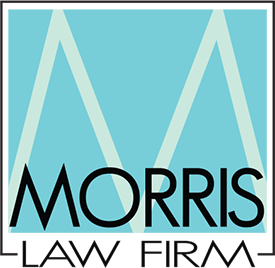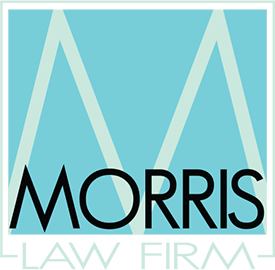Theft crime accusations, even without a conviction, can lead to unfair assumptions about your character. These judgments can cloud the public's perception of you and your standing in your community. Add to that Florida’s stringent theft laws, and it’s easy to feel as though the system is stacked against you.
Our goal as a Clearwater defense firm is to even the playing field. We approach each case with the understanding that every individual deserves fair representation and a chance to reclaim their life. We work tirelessly to challenge the accusations against you and protect your rights.
Uncertain about your options after a theft accusation? Call (727) 388-4736 for a free consultation or contact us online to take the first step forward.
Types of Theft Crimes We Represent
Theft crimes in Clearwater can vary significantly in scale, complexity, and penalties. Florida Statutes such as §812.014 outline these different offenses and provide specific frameworks for how they are prosecuted.
Below, we’ll take a closer look at some of the types of theft charges you may face.
Petit Theft
Petit theft involves the unlawful taking of property valued at less than $750. This is often charged as a second-degree misdemeanor, carrying penalties of up to 60 days in jail and a $500 fine. A first-degree misdemeanor charge applies when the value exceeds $100 but is still under $750, with possible penalties of up to one year in jail and $1,000 in fines.
Grand Theft
Grand theft occurs when the value of stolen property is $750 or more. This crime is charged as a felony and is categorized by degrees based on property value:
- Third-Degree Grand Theft (property valued between $750 and $20,000): Punishable by up to 5 years in prison and $5,000 in fines.
- Second-Degree Grand Theft (property valued between $20,000 and $100,000): Punishable by up to 15 years in prison and $10,000 in fines.
- First-Degree Grand Theft (property valued over $100,000): Punishable by up to 30 years in prison and $10,000 in fines.
Other instances, such as the theft of firearms, vehicles, or emergency medical equipment, automatically classify as grand theft irrespective of monetary value.
Shoplifting (Retail Theft)
Shoplifting involves stealing or attempting to steal merchandise from a retail store. The severity of charges depends on the value of the property and any prior convictions.
Burglary
Burglary goes beyond theft, requiring unlawful entry into a structure, dwelling, or vehicle with the intent to commit a crime inside. Penalties increase significantly if the burglary occurs in an occupied residence, involves the use of weapons, or results in physical harm to another individual.
Robbery
Robbery involves the use of force or threats while stealing property directly from another person. Aggravated robbery involves weapons and carries even stricter penalties.
White-Collar Theft Crimes
White-collar theft charges include embezzlement, credit card fraud, and identity theft. These often involve financial schemes rather than physical theft but still carry severe consequences, including restitution and imprisonment.
Speak with an experienced attorney about your theft case. Call (727) 388-4736 or reach out online to schedule your free and confidential consultation.
When Theft Crimes Escalate from Misdemeanor to Felony
Several factors determine whether a theft crime in Florida remains a misdemeanor or escalates to a felony offense. These include the following considerations:
Value of Stolen Property
The shift from misdemeanor petit theft to felony grand theft is tied to property value. For instance, stealing items valued at $749 or less may result in a misdemeanor charge, while taking property valued at $750 or more could trigger a felony.
Repeat Offenses
For individuals with prior convictions, even minor infractions can carry amplified consequences. Under Florida law, a third conviction for petit theft automatically steps up to felony-level charges, regardless of the stolen property’s value.
Specific Items or Circumstances
Certain items, such as government-owned property, firearms, or medical devices, automatically trigger felony-level charges. Similarly, theft involving elderly victims or other vulnerable populations can lead to enhanced charges under statutes meant to protect these groups.
Possible Defenses Against Theft Charges
Defending against theft charges requires a carefully tailored legal strategy, as every case is unique. Common defenses often include the following:
- Lack of Intent. Intent is a critical element in theft cases. For a theft conviction, prosecutors must prove that you intended to permanently deprive the owner of their property. If, for example, you inadvertently walked out of a store with an unpaid item or genuinely forgot to return borrowed property, this could disprove intent.
- Ownership Disputes. Theft charges can often arise from misunderstandings about ownership. If you genuinely believed the property was yours or that you had permission from the owner to use or take it, this misunderstanding can form the basis of a defense.
- Duress or Coercion: Theft committed under duress occurs when someone is forced to steal due to threats or coercion by another person. Courts take such circumstances seriously, though the burden of proof for duress rests with the defendant.
- Unlawful Search and Seizure: The Constitution protects individuals from evidence obtained through illegal searches or seizures. If law enforcement violated proper legal procedures any evidence gathered may be inadmissible in court. Because the prosecution may lack sufficient evidence without the unlawfully obtained material, this could result in the charges being reduced or even dismissed.
Each of these defenses requires a thorough examination of the facts and circumstances surrounding your case. Our knowledgeable attorneys can help you understand your options and build a strong defense in the face of serious accusations.
What Are Your Rights When Accused of Theft?
Understanding your rights is critical when facing theft charges. Exercising these rights can affect the course of your case. Here are some key rights to remember:
- Right to Remain Silent. Avoid making statements to law enforcement without your attorney present. Anything you say can be used against you in court.
- Right to Legal Representation. An attorney will advocate for you and protect your rights throughout the legal process.
- Right Against Unlawful Searches. If law enforcement conducted a search without proper cause or a valid warrant, any evidence gathered could be deemed inadmissible.
Unique Nuances of Theft Charges in Clearwater
Clearwater’s tourist and boating economy creates unique circumstances that often influence theft-related arrests in the area. Understanding the local context is crucial when addressing these types of charges.
- Tourism-Related Theft: Crowded tourist hotspots like Clearwater Beach and Pier 60 see a higher frequency of shoplifting and pickpocketing incidents. These areas attract many visitors, leading to misunderstandings, misidentifications, or even false accusations.
- Nautical Theft: Clearwater’s rich boating culture also brings unique challenges, with theft of marine equipment, such as anchors or fishing gear, being relatively common. These cases often hinge on ownership documentation, usage agreements, and knowledge of maritime-related property laws.
Why Choose Morris Law Firm, P.A.
Choosing the right legal team can make all the difference in protecting your rights and securing a favorable outcome. Here's why Morris Law Firm, P.A. is the trusted choice for countless clients:
- Free and Confidential Consultations. We take the time to evaluate your case carefully without any obligation or up-front cost.
- Attorneys On Call 24/7. Direct access to your attorney at any time ensures your questions and concerns are immediately addressed.
- Flexible Payment Plans. We understand the financial strain legal charges create. Our payment plans make quality representation accessible.
- Former State Prosecutor. With experience from both sides of the courtroom, we understand how prosecutors build and pursue cases.
- 20+ Years in Criminal Law. Our extensive experience provides the insight necessary to handle a wide range of theft-related cases.
- Swift Same-Day Representation. Time is critical. We value a proactive approach and can begin defending you the same day as your consultation.
Accused of a theft crime in Clearwater? Call (727) 388-4736 or message us online to discuss your case and learn how we can help safeguard your rights and your future.










